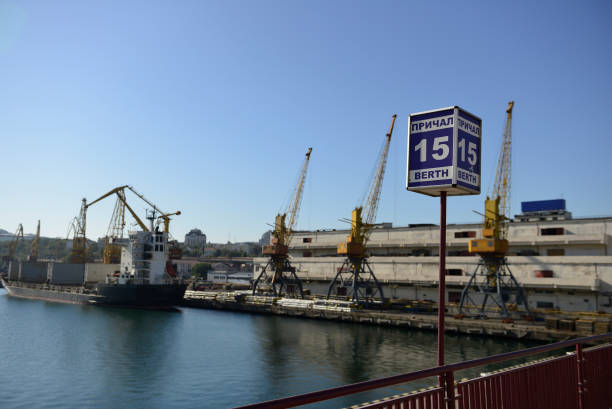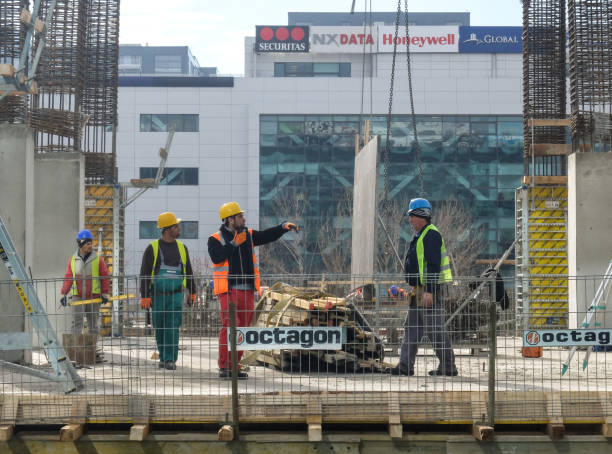Longshoreman and Harbor Workers Compensation – Longshoreman and harbor workers are maritime employees who work on or near the navigable waters of the United States, such as docks, piers, terminals, shipyards, and harbors. They perform various tasks related to the loading, unloading, repairing, or building of vessels. These workers are exposed to various hazards and risks in their work environment, such as falls, heavy machinery, toxic substances, and water accidents. Therefore, they are entitled to receive compensation, medical care, and vocational rehabilitation services if they suffer from work-related injuries or illnesses.
The Longshore and Harbor Workers’ Compensation Act (LHWCA) is a federal law that provides these benefits to eligible maritime workers. The LHWCA is administered by the Office of Workers’ Compensation Programs (OWCP) under the U.S. Department of Labor. The LHWCA also covers some other types of employees who work on offshore facilities or under contracts with the U.S. government.
READ ALSO
- Enterprise Risk Management Plan (ERM) – All You Need to Know
- Cheaper Auto Insurance Quotes: How to Find it in 2023
- How to Get a Real Estate License in Texas (TX): A Step-by-Step Guide
- Florida Car Lease Insurance Requirements: What You Need to Know
- Strategic business analysis: How to do it effectively in 2023
- IRS Tax Debt Relief Programs: How to Apply and Save Money
Eligibility and Coverage
To be eligible for benefits under the LHWCA, a worker must meet two criteria: status and situs . Status refers to the type of work performed by the worker, while situs refers to the location where the injury occurred.
- Status: The worker must be engaged in maritime employment, such as longshoreman, harbor worker, ship repairer, shipbuilder, or shipbreaker. The LHWCA also covers some non-maritime employees who work on navigable waters, such as divers, engineers, surveyors, or construction workers.
- Situs: The injury must occur on the navigable waters of the United States or in adjoining areas that are used for maritime activities, such as piers, docks, terminals, wharves, or areas for loading or unloading vessels.
The LHWCA does not cover seamen who work on board vessels or who have a substantial connection to a vessel. Seamen are covered by a different law called the Jones Act.
Benefits and Claims
The LHWCA provides four types of benefits to injured workers: compensation, medical care, vocational rehabilitation, and death benefits.
- Compensation: The worker can receive temporary or permanent disability payments based on their average weekly wage and the extent of their impairment. The LHWCA sets minimum and maximum rates for these payments.
- Medical care: The worker can receive medical treatment for their injury or illness from a doctor of their choice. The employer or the insurance carrier must pay for all reasonable and necessary medical expenses.
- Vocational rehabilitation: The worker can receive vocational counseling, training, or job placement services if they are unable to return to their previous occupation due to their disability.
- Death benefits: The surviving spouse and dependents of a worker who dies as a result of a work-related injury or illness can receive funeral expenses and weekly payments based on the worker’s average weekly wage.
To receive benefits under the LHWCA, a worker must file a claim with the OWCP within one year of the injury or death. The employer or the insurance carrier must also report the injury or death to the OWCP within 10 days. The OWCP will review the claim and issue a compensation order. If there is a dispute over the claim, either party can request a hearing before an administrative law judge (ALJ). The ALJ’s decision can be appealed to the Benefits Review Board (BRB) and then to the federal courts.
Longshore Act Extensions
The LHWCA has been extended by Congress to cover some other types of employees who are not covered by other workers’ compensation laws. These extensions include:
- Defense Base Act (DBA): This extension covers civilian employees who work under contracts with the U.S. government for public works or national defense projects outside the continental United States.
- Outer Continental Shelf Lands Act (OCSLA): This extension covers employees who work on offshore facilities for the exploration or development of natural resources on the outer continental shelf of the United States.
- Nonappropriated Fund Instrumentalities Act (NFIA): This extension covers civilian employees who work for nonappropriated fund activities of the U.S. military, such as exchanges, commissaries, or recreation services.
These extensions provide the same benefits and follow the same procedures as the LHWCA.
In conclusion, longshoreman and harbor workers compensation is a federal program that provides benefits to maritime workers who are injured or killed on the job. The LHWCA is the main law that governs this program, but some extensions cover other types of employees who work in similar conditions. The LHWCA aims to protect the rights and interests of both workers and employers in the maritime industry.
What Are The Benefits Of Being A Longshoreman?
Being a longshoreman can be a rewarding career for those who enjoy physical work and maritime activities. Some of the benefits of being a longshoreman are:
- You can earn a good salary. According to Salary.com, the average salary range for a longshoreman is from $54,772 to $67,085.
- You can have flexible work hours. You can set your schedule and choose what shift you want to work, depending on the availability of work and your seniority.
- You can receive workers’ compensation benefits if you are injured or ill on the job. The Longshore and Harbor Workers’ Compensation Act (LHWCA) provides medical care, disability payments, vocational rehabilitation, and death benefits to eligible maritime workers.
- You can enjoy union benefits if you are a member of a longshoremen’s union. Union benefits may include programs that make traveling more affordable, help workers get an affordable mortgage for their homes, and offer a range of insurance plans.
- You can gain valuable work experience and skills in the maritime industry. You can learn how to operate heavy machinery, handle cargo, and work in a team environment. You can also advance your career by taking on more responsibilities or pursuing higher education.
Frequently Asked Questions (FAQ): Longshoreman and Harbor Workers Compensation
Why Are They Called Longshoremen?
Longshoremen are workers who load and unload ships. The term longshoreman originated in the United States from the meaning “a man along the shore”. The term stevedore is also commonly used to refer to these workers, and it originated in Portugal or Spain from the word estibador, meaning “a man who stuffs”.
The word longshoreman is a shortened form of alongshore, which means “existing or employed along a shore or coast”. The prefix long is added to emphasize the geographical length of the dock or shoreline. The name longshoreman accurately describes the role of these workers in the maritime industry.
In other countries, people who load and unload ships are usually called dockers, stevedores, or wharfies. In Canada, the term stevedore has also been used, for example, in the name of the Western Stevedoring Company, Ltd., based in Vancouver, British Columbia, in the 1950s.
What skills do you need to be a longshoreman?
To become a longshoreman, you need to have the following skills:
- Physical strength and stamina: You need to be able to lift and move heavy objects, work in different weather conditions, and endure long hours of physical labor.
- Ability to operate heavy machinery: You need to be proficient with operating tractors, forklifts, cranes, and other equipment used to load and unload cargo.
- Familiarity with safety protocols and regulations: You need to follow the safety guidelines and procedures to prevent accidents and injuries at the workplace.
- Knowledge of cargo handling and storage: You need to know how to handle different types of cargo, such as containers, bulk, or break-bulk, and how to store them properly in the warehouse or on the ship.
- Experience in loading and unloading cargo: You need to have some prior experience in similar shipping and receiving environments, such as working as a loader at a warehouse or in supply chain logistics.
Where do longshoremen make the most money?
the average longshoreman salary in the United States is $60,895 per year. However, this can vary widely depending on the state, industry, experience, and skills of the longshoreman.
Some of the highest-paying states for longshoreman jobs are Hawaii, Nevada, and Massachusetts. In Hawaii, the average total salary for a longshoreman is $122,500 per year, which is almost double the national average. Nevada and Massachusetts also offer above-average salaries of $85,000 and $83,000 per year respectively.
Some of the highest-paying industries for longshoreman jobs are Legal, Aerospace & Defense, and Agriculture. In these industries, the average hourly pay for a longshoreman ranges from $19.23 to $20.43, which is higher than the national average of $17.23.
Of course, the salary of a longshoreman also depends on their level of experience and skills. Longshoremen who have more years of work experience, certifications, or additional skills may earn more than their peers.
Which port job pays the most?
Some of the highest-paying port jobs are:
- Port Engineer: A port engineer works on the technical aspects of operations and infrastructure at a port. They oversee ship maintenance and repair and ensure that engineering work meets safety standards and marine regulations. They may also work on harbor improvements, dredging, and other projects. The salary range for a port engineer in the United States is $92,000-$187,000 per year.
- Naval Architect: A naval architect designs, maintains, and repairs naval equipment, including boats and other water vehicles. They use technical and scientific knowledge of physics, materials, engineering, and architecture concepts to create blueprints and prototypes of ships. They also examine and diagnose problems with ships and perform maintenance and testing duties. The salary range for a naval architect in the United States is $64,500-$132,000 per year.
- Ship Engineer: A ship engineer operates and maintains a ship’s engine, boiler, pump, generator, and other machinery. They monitor the performance of the ship’s systems and troubleshoot any issues. They also ensure compliance with environmental and safety regulations

